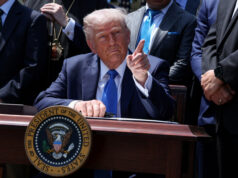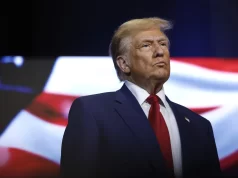
As the war in Ukraine grinds on, Russian President Vladimir Putin has put forward a controversial proposal: a temporary administration in Ukraine to facilitate new elections and establish peace accords. The proposal comes as the United States, under President Donald Trump, intensifies economic negotiations with Ukraine, pushing for a new investment framework. The unfolding situation presents a complex diplomatic challenge with far-reaching implications for Ukraine, Russia, and the West.
Putin’s Proposal: A Path to Peace or a Political Ploy?
Putin’s proposed temporary administration is framed as a solution to what he describes as the legitimacy crisis of Ukraine’s current government. With President Volodymyr Zelensky’s administration firmly rejecting Russian claims and continuing to resist occupation, Moscow argues that an interim government could pave the way for internationally monitored elections. However, critics see this as an attempt by Russia to gain political control over Ukraine without direct military conquest.
U.S. Economic Demands and the Future of Ukraine’s Economy
While Putin’s proposal unfolds, Washington is taking a different approach by leveraging its financial support. The Trump administration is negotiating an economic agreement with Ukraine, which includes a “right of first offer” clause—giving U.S. companies priority in major investment opportunities in Ukraine’s reconstruction and resource development. This move signals Washington’s desire to shape Ukraine’s post-war economy and secure a strategic economic foothold in the region.
The U.S. has provided an estimated $100 billion in military aid to Ukraine, though Trump claims the total financial support—including indirect assistance and economic aid—amounts to $350 billion. The new economic deal could serve as a means to recoup some of the extensive financial assistance provided over the past two years.
Ukraine’s Response: Political and Military Constraints
Ukrainian President Zelensky has firmly dismissed the idea of holding elections under martial law, citing security risks and logistical challenges. Ukraine’s electoral system requires stability, and the presence of Russian troops in occupied territories makes a fair vote nearly impossible. Furthermore, Zelensky is wary of the economic demands coming from Washington, fearing they could weaken Ukraine’s partnerships with its European allies, who may view the U.S. approach as overreach.
The Geopolitical Implications
Putin’s proposal and the U.S. economic push place Ukraine at the center of a new geopolitical tug-of-war. While Moscow seeks to reshape Ukraine’s political landscape, Washington is focused on its economic and strategic interests. Europe, meanwhile, is carefully observing these developments, as any shift in Ukraine’s governance or economic structure could impact regional stability.
Conclusion
As negotiations unfold, Ukraine faces difficult choices. While rejecting Putin’s proposal for a temporary administration, it must also navigate the economic expectations of its Western allies. The coming months will reveal whether diplomatic talks can lead to a resolution—or whether Ukraine will continue to be caught in the crossfire of global power struggles.



